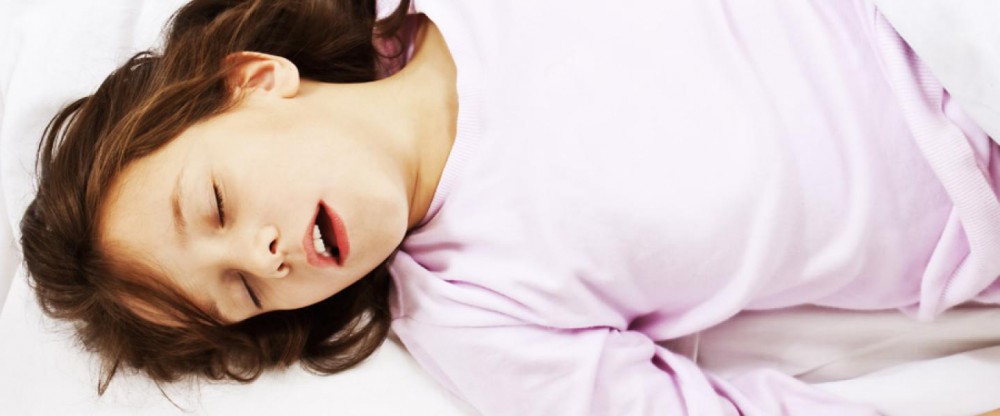Is Your Child’s Snoring A Sign of Obstructive Sleep Apnea?
Habitual snoring is usually not a reason for parents be concerned. As many as one in 10 kids under the age of 10 snore regularly, with most of them tapering off as they get older. Sometimes though, snoring can be an indicator of a more serious condition, including pediatric obstructive sleep apnea (OSA)—a condition that can result in disrupted sleep, cognitive impairments, and even death. Is your child’s snoring cause for concern? Here are some factors to consider before talking to your physician.
The Snoring Is Intense
Snoring is far and away the most common symptom of OSA, reported in more than 90 percent of cases. But as anyone who’s ever gone to sleepaway camp can tell you, not all snores are created equal. Take an extended listen to your child’s snoring: If the sounds are punctuated by gasps or labored breathing, or if they are accompanied by thrashing in bed, they could be a sign of a more serious condition.
Your Child Is Overweight
Childhood obesity is a growing contributor to kids at risk for OSA. A 20-year review by the Centers for Disease Control of obesity-associated diseases among children ages 6 to 17 found hospital discharges for sleep apnea in this population increased a whopping 436 percent during that time span.
Your Child Struggles with Bedwetting
One symptom of OSA is an increased risk for bedwetting at night. One possible explanation is that children who suffer from sleep-disordered breathing frequently produce more sweat and urine than normal, which may lead to bedwetting. OSA may also have an effect on a child’s arousal response, bladder pressure, or urinary hormone secretion, all of which could contribute to nighttime bedwetting.
Behavior Problems Are on the Rise
While snoring and other nocturnal symptoms can be clues to the presence of pediatric OSA, other signs may be more clear in the light of day. A bad night’s sleep can impact anyone’s daily routine, and kids are no different—especially in cases of chronic restlessness. Sleep disruptions related to OSA can leave kids feeling not quite themselves. Moodiness, disruptive behavior, and trouble paying attention may all be indications of disrupted sleep, particularly when combined with other symptoms.
While OSA can be serious, it’s also a very common and treatable condition. If you are concerned that your child’s snoring may be a sign of something more serious, talk with your family physician. You child may need to see a sleep specialist for a polysomnography—or sleep study—which can help with a more concrete diagnosis.
Explore how today's modern family sets rules for sleep, navigates the use of technology in the bedroom, how parents can serve as sleep models for their family and make the dream of a "sleep healthy home" come true.The Electronics and Sleep infographic highlights how technology affects the modern family and how parents can help design a sleep healthy home by setting boundaries around the use of technology, setting rules around electronics use and setting a good example. Additional data is available in our 2014 Sleep in America Poll(R), Sleep in the Modern Family View/Download Electronics and Sleep...If your child’s bedtime routine during the summer has slipped with staying up late and sleeping in late, it’s never...When it comes to training for sports, many student-athletes and their parents recognize the importance of eating well and exercising...A little one’s pre-bedtime plea for just one more storybook or game of Go Fish may be difficult to resist,...Sleep problems are common among kids who are anxious or who are making a transition to a new school. They...After safety and nutrition, how much sleep a child gets is uppermost in a parent’s mind. The amount your child...Of the approximately 90 million American adults who occasionally experience snoring, many think of it as simply an annoyance, or...Obstructive sleep apnea (OSA)—a disorder where blocked airways during sleep lead to disrupted breathing and excessive snoring —affects about 3...Sleep is restorative for the body and mind. But if you’re among the more than 18 million Americans who have...

Source: Internet





